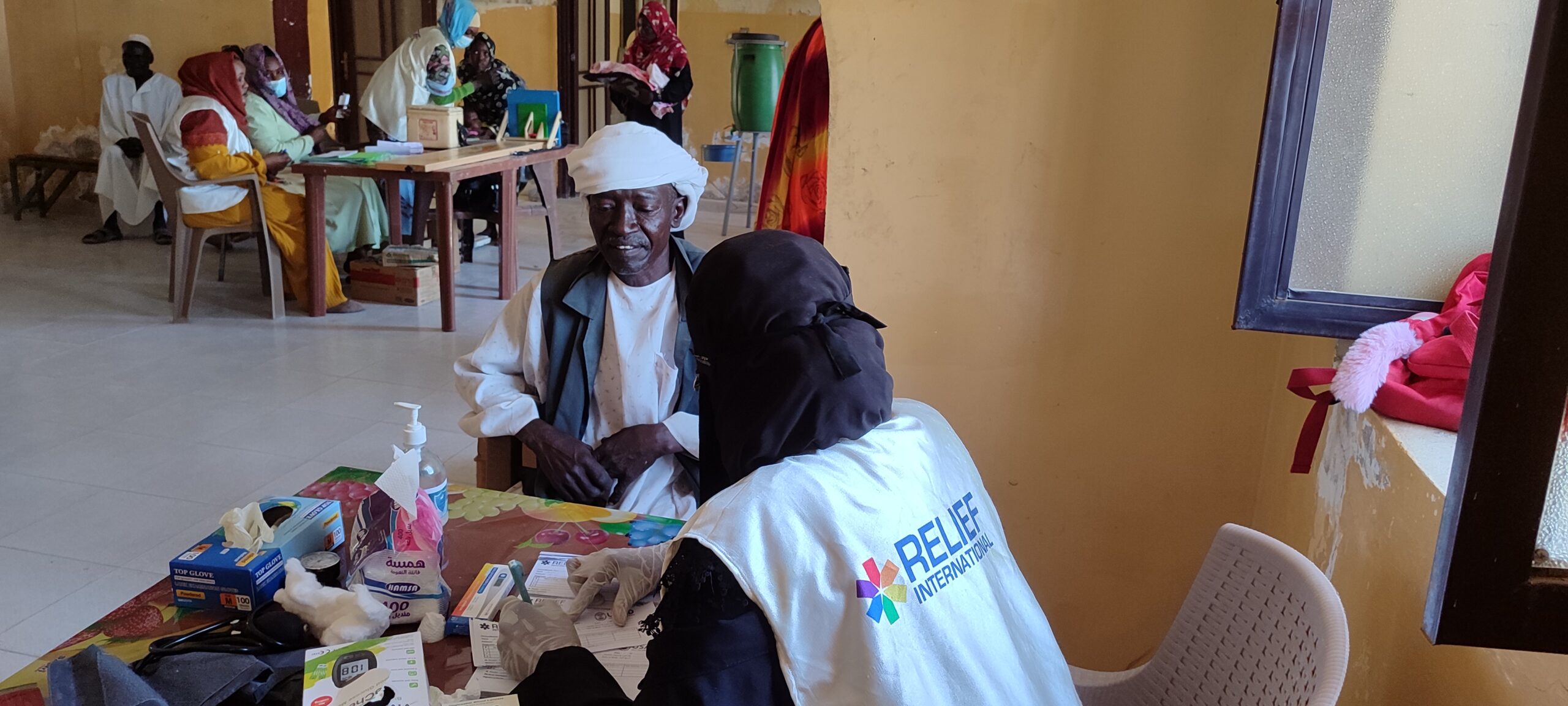One year since the conflict erupted in Sudan on 15 April 2023, international non-profit Relief International says the humanitarian situation is accelerating. With every week that passes, thousands of families are still being forced to uproot and flee. To date, over 8.4 million people have been displaced within Sudan and to neighboring countries that are unable to cope. The situation is set to deteriorate even further with the onset of the lean season from April to July, sparking fears of the world’s worst hunger crisis.
Relief International is one of the few organizations still operating in North Darfur. It is one of the worst-affected regions, and an influx of refugees continues to arrive, bringing the current total to over 530,000. In camps and gathering points for displaced people, the availability of essential and life-saving supplies has hugely decreased.
Mark Atterton, Regional Director at Relief International, says, “Our priority is keeping people alive. We provide treatment for severe malnutrition, trauma care, medicine, vaccines, and mental health support. Of course, people still need services like antenatal and postnatal care, too. Our facilities are being affected by the conflict with shrapnel piercing the walls and ceilings, but we are doing everything we can to continue providing life-saving healthcare.”
35-year-old Hawa says she feels traumatized by the conflict. When Hawa went into labor with her baby, her village had fuel shortages. Her husband searched for transportation for five hours and finally found a cart they used to make the long journey to the hospital in El Fasher. After a Relief International midwife examined Hawa, her baby was delivered safely. Hawa says, “I was so relieved. My life was saved.”
Relief International has set up ‘stabilization’ centers in ZamZam, Almalha, and El-Fasher in North Darfur to treat cases of severe malnutrition. Health worker Ahlam recalls helping a mother who had fled violence in West Darfur. “Due to the trauma she had experienced, she was unable to breastfeed her malnourished nine-month-old baby.” After conversing with Ahlam, the woman sought nutritional support for her baby at Relief International’s center in El Fasher.
Relief International operates over 40 health facilities across Sudan. From the beginning of the conflict to December 2023, it provided over 840,000 health, nutrition, and hygiene services. In response to the crisis, the organization scaled up operations in North Darfur, deploying mobile clinics and expanding services to include El Fasher Southern Hospital in the region’s capital city.
South Sudan
The ongoing crisis in Sudan continues to impact the broader region, with over 1.7 million people seeking shelter in neighboring countries. The majority of families are fleeing to South Sudan and Chad, which are already some of the world’s poorest countries. In March 2024 alone, almost 57,000 people arrived in South Sudan and over 8,000 in Chad.
Many have traveled for days on foot without enough food and water and with only the belongings they can carry. When they finally arrive at their destination, conditions are deplorable. The transit centers in South Sudan’s Renk were only intended to host up to approximately 10,000 people, but over 57,000 are currently sheltering there. Relief International staff conduct approximately 250 consultations every day, and the organization says the most prevalent conditions are malaria, measles, diarrhea, and acute respiratory infections.
From Renk, refugees are making the 9 -10 hour journey to Maban in the country’s Upper Nile State, where there are four refugee camps—Doro, Yusuf Batil, Kaya, and Gendrassa. Relief International is the only organization providing health support in the camps. It says there are insufficient staff, medicine, or supplies to cope with the surge of people arriving.
Relief International Project Manager Dr Alex Mawa says, “The prevalence of malaria is very high. More than six tons of anti-malaria medicine are used every three months.”
Kashif Shafique, Country Director at Relief International, says, “We cannot ignore the situation in Sudan any longer. One year after the conflict erupted, the humanitarian crisis is accelerating with persisting violence, mass displacement, and now the risk of famine. Currently, the amount of medical and nutritional supplies do not meet the huge needs on the ground. More funding is urgently required to increase life-saving aid and extend a lifeline to the forgotten communities living in this nightmare.”
READ MORE ABOUT AFRICA

